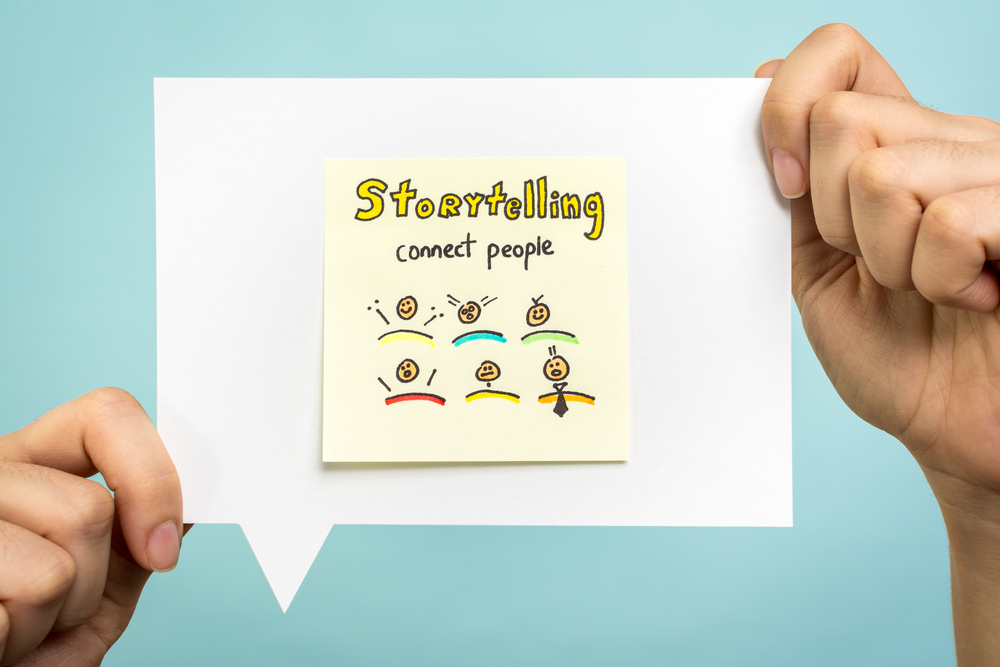How a Storytelling Coach Can Transform Your Communication
A storytelling coach can help you in numerous ways, offering frameworks, tips, tools, and techniques not just to enhance your capabilities as a storyteller, but also to help you craft stories that are more compelling and engaging for your specific purposes. In the realms of leadership, business, or various organizational roles, storytelling serves multiple functions. Sometimes, stories become an integral part of a sales presentation; other times, they form the essence of your elevator pitch, taking less than a minute to convey through narrative the essence of what you do, how you do it, or why you do it. Many individuals can enrich those critical public speaking moments – the big speeches or keynotes – by embedding storytelling, strategically placing the right story to maximize impact.
A storytelling coach navigates you through a tailored approach, aiding you not just in shaping and rehearsing significant stories for those pivotal moments in your professional and personal life, but also in evolving as a storyteller. This process encompasses a broad spectrum of skills and encourages a mindset attuned to the art of storytelling, allowing for continual improvement. Contact us at [email protected] if you are interested in coaching or storytelling training.
Elevating your Storytelling Skills to Develop your Story
What Happens in a Storytelling Coaching Session?
- Identifying Your Unique Story: Every person or brand has a unique story buried within their experiences, values, or mission. A storytelling coach helps unearth these hidden narratives, highlighting your individual journey and the factors that set you apart. This process often involves profound reflective exercises, encouraging you to delve into your history, challenges, triumphs, and lessons learned.
- Understanding Your Audience: A significant part of storytelling is knowing whom you’re addressing. Coaches assist in mapping out audience personas, understanding their perspectives, interests, and the issues that resonate with them. This insight is crucial for crafting stories that strike a chord and incite engagement.
- Structuring Your Story: A compelling story is not a jumble of events, but a well-orchestrated journey that strategically builds and releases tension. Coaches introduce proven narrative frameworks — such as the Hero’s Journey or the Three-Act Structure — to shape your story with a clear beginning, middle, and end, ensuring it is coherent, engaging, and memorable.
- Enhancing Emotional Connectivity: Stories are vessels that transport audiences through an emotional experience. Through various techniques, like vivid imagery or metaphorical language, coaches help you weave emotion into your narrative, making it relatable and moving. This emotional layering is crucial for stories meant to inspire, motivate, or lead to action.
- Practicing the Delivery: The impact of a story heavily relies on its delivery. Storytelling coaches work with you on your verbal and non-verbal communication skills, refining aspects like tone, pace, volume, and body language. Practice, feedback, and even video playback are common tactics used to improve and perfect your storytelling performance.
- Adapting Stories Across Formats: In today’s digital age, your narrative might be shared across various platforms. Coaches can guide you on how to modify your story without losing its essence, whether it’s being told in a meeting, over social media, or through any other channel.
- Continuous Improvement and Application: Finally, storytelling coaching isn’t a one-and-done deal. Coaches provide strategies for continuous development and encourage the consistent application of storytelling in your everyday communication. They help establish a cycle of storytelling, feedback, and refinement, fostering not only skill improvement but also confidence in your ability to connect and influence through your narratives.
A storytelling coach does more than polish your public speaking skills; they unlock your potential to connect deeply with others, allowing you to lead, influence, and inspire through the power of narrative. Whether you’re aiming to sway a client, rally a team, or share a vision, mastering the art of storytelling opens new avenues of personal and professional fulfillment.

Example Storytelling Coaching Session Outline
Depending on your objective, here’s an example outline for a 1 to 1.5-hour storytelling coaching session designed to enhance storytelling skills. The session can also be tailored to help you “prototype and test” important stories you need to tell.
- Introduction (5 minutes)
- Brief meet and greet.
- Overview of the session’s structure and goals.
- Setting the stage for open communication and creative freedom.
- Clarifying Your Objective (10 minutes)
- Discussing the purpose behind wanting to tell this specific story.
- Understanding the context in which the story will be told.
- Identifying the primary message or takeaway for the audience.
- Uncovering Your Story (15 minutes)
- Deep-dive into personal experiences, values, and insights to find unique angles or elements that could contribute to the story.
- Collaborative brainstorming with the coach to discover potential narrative arcs or pivotal moments worth exploring.
- Understanding the Audience (10 minutes)
- Analyzing the intended audience: their interests, concerns, values, and demographics.
- Predicting audience expectations and potential responses to different narrative elements.
- Discussing how to create relatable content for this specific group.
- Crafting the Narrative Structure (20 minutes)
- Learning about effective storytelling frameworks and structures.
- Outlining the story’s beginning, middle, and end, ensuring it has a clear path and compelling elements.
- Developing the plot points, identifying the climax, and ensuring the message is clear and impactful.
- Enhancing Emotional Engagement (15 minutes)
- Techniques for building empathy and emotional connection through storytelling.
- Exploring language, descriptive details, and personal reflections to deepen the story’s emotional impact.
- Role-playing or practicing parts of the story to fine-tune its emotive aspects.
- Delivery Techniques (15 minutes)
- Overview of effective verbal and non-verbal communication strategies specific to storytelling.
- Practicing pacing, tone modulation, and body language to enhance the story’s delivery.
- Immediate feedback from the coach, with tips for maintaining audience engagement.
- Final Review and Strategy for Next Steps (10 minutes)
- Summarizing the key points of the session and reviewing the constructed story.
- Discussing strategies for practicing and further refining the story after the session.
- Setting goals and, if applicable, planning follow-up sessions to monitor progress and make necessary adjustments.
- Q&A/Feedback (5 minutes)
- Addressing any remaining questions or concerns the participant might have.
- Providing final thoughts, encouragement, and motivational tips.
The outline ensures that the session is comprehensive yet adaptable, considering the needs and goals of the individual. Through this approach, participants don’t just craft a story; they experience personal growth that enhances their overall communication style. We can connect you to a storytelling coach who may have their own style that can fit with what you need to achieve with your story.
Storytelling Coaching with a Storytelling Coach – Conclusion
Engaging in a coaching session with a storytelling expert can be a transformative learning and development experience, particularly when the aim is to hone your storytelling skills and help you develop a key story. This guidance is invaluable in creating and conveying a story for a cause that holds personal significance to you, potentially serving as a cornerstone for your career advancement. Please reach out to us at [email protected] with your interest in coaching or storytelling training. You can utilize a storytelling coach as part of a larger training program or workshop or in just a 1:1 capacity when you need it. Some people that do our storytelling workshops would like a deeper individualized session to craft their story ideas. This is where a storytelling coaching session can be helpful but it need not be done in conjunction with one of our workshops or online storytelling courses and programs. It can stand alone.
